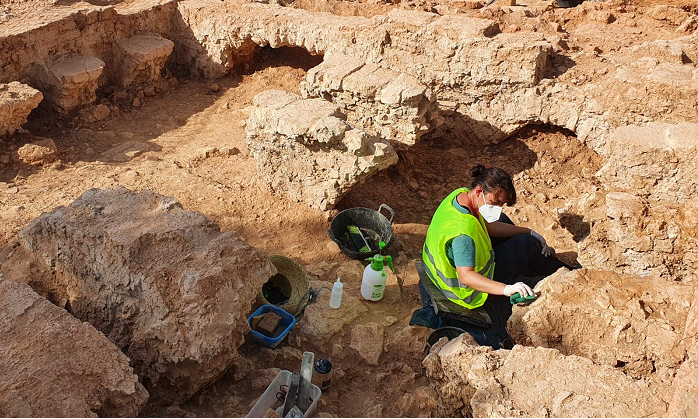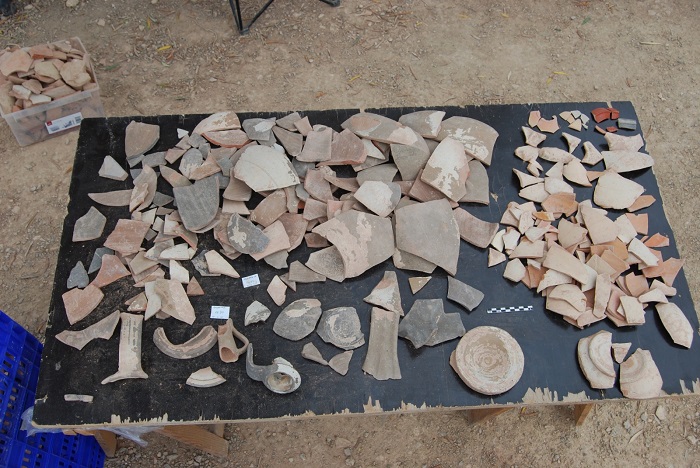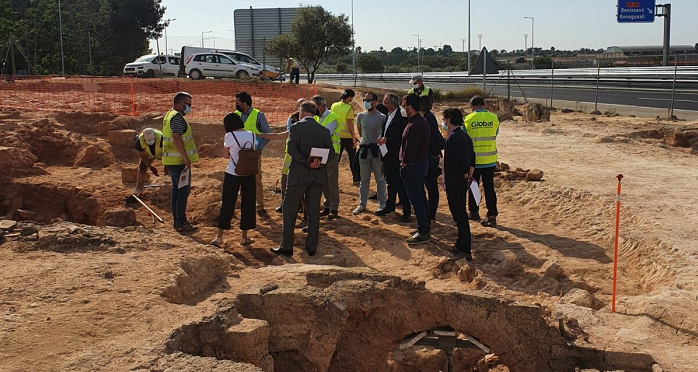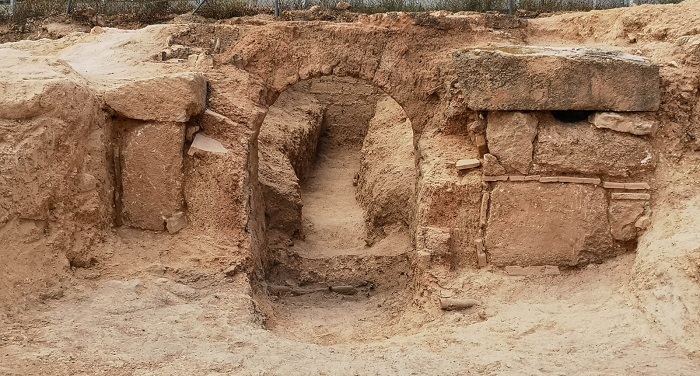In the past year, Sacyr Concessions (through its Turia Highway concession) and Sacyr Engineering and Infrastructure widened the CV-35 highway by adding a third lane, six kilometers in length, near the Iberian and Roman city of Llíria in Valencia.
In addition to the expansion works, the concessionaire fully funded the archeological dig, inventory of materials, as well as their subsequent analysis and documentation to complete the excavation and research of the Rascanya kilns site, which dates from the Roman period (1st-3rd century C.E.).
The Rascanya kilns were once an essential component in the daily life of ancient Edeta (Llíria) and, like today, they required a network of roads to transport the ceramics and building materials produced there. Eighteen centuries later, the CV-35 highway—managed by SACYR Concessions—continues to play an instrumental role in the economic activity of Valencia’s metropolitan area, linking the city to the inland regions of Camp de Turia and Los Serranos.
As David Espeja, general manager of the Turia Highway, points out, “For us, the most important part of the expansion and the focus of the entire concessionaire team and of Sacyr was to generate as little interference as possible in the daily lives of CV-35 users, while at the same time having a positive impact on society beyond reducing travel times and improving safety."

"We wanted to recover part of the community’s cultural heritage and historic legacy through this significant Roman site, which is of particular interest to the municipality, and has helped us better understand the way of life of the region’s ancestors through the major industrial production center that is the Clots de Rascanya kilns.”
“It has been an enormous pleasure for the entire Sacyr team to work with the specialized group of archeologists and technicians from the various administrations, who have given us a new perspective on what we do, beyond our daily routine of traffic and asphalt, that isn’t limited to the development and management of infrastructures, but includes the recovery and enhancement of those built by our ancestors 2,000 years ago, thus providing enormous value for both ourselves and society overall. Past and present, hand in hand, looking to the future.”
From the beginning, the sense was that the site was important, but as excavation progressed, the information obtained confirmed its historical and archeological significance. The Turia Highway concessionaire was tasked with promoting and funding the dig, which is recorded in the book, La alfarería romana de Rascanya (Edeta Llíria) (The Roman Pottery of Rascanya).
Overseeing the four-month excavation was the regional heritage department of the Valencian government’s Ministry of Culture, as well as municipal archeologists from Llíria, where the site is situated.

Rascanya
The pottery of Rascanya, with its kilns, basins, and chambers, represents a privileged site for the study of craftsmanship, the distribution of space, and the productive processes of the Roman era, as well as the analysis of the ceramic materials created onsite.
Initial excavation in 1991
The Llíria site contains hardly any ceramic material from the Iberian era that could be related to the first Roman occupation of the region, but there are a series of Roman structures for ceramic production, including three kilns.
The construction of the Valencia-Llíria highway in 1991 made it possible to conduct one of the first archeological interventions of the city of Edeta. Important Roman pottery remains were documented and secured on a median at the Llíria Este junction (kilometer marker 23) of the CV-35.
The site includes different areas typical of a ceramic production center, from workshops to domestic spaces, and kilns whose archeological excavation reveals that the space was reused for at least 200 years in the 1st and 2nd centuries C.E. In total, four kilns distributed around a central courtyard were recovered.
Work in 2021
Between March and June 2021, while construction on the third lane of highway was underway, the concessionaire and Sacyr Engineering and Infrastructure carried out archeological work to consolidate and reveal the structures preserved in-situ at this unique heritage site, including cleaning, excavating, and consolidating the three previously-discovered ovens and the outcropping of a fourth of considerable size, which was a new find.
The remains of the ceramics and utensils found, restored, and documented have been moved to the city’s archeological museum for public viewing.

In 2021, the expansion of the Turia Highway, held jointly by Sacyr Concessions and the 3i investment fund, was completed. The work represented the second phase of the CV-35 and CV-50 concession contract, in which the concessionaire invested 40 million euros.
Expansion included construction of a third lane, six kilometers in length, in both directions between Pobla de Vallbona and Llíria (kilometer marker 19.6 to 25.6) and the widening of 15.4 kilometers of divided highway between Casinos and Losa del Obispo (kilometer marker 36.8 to 52). These improvements, completed in record time (18 months), have helped reduce travel times, increase road safety, and improve the connectivity of Valencia and its metropolitan area with the counties of Rincón de Ademuz and Los Serranos through a high-capacity roadway.
Positive impact
The 2021-2025 Sustainable Sacyr Plan includes Sacyr’s commitment to generating a sustainable return and having a positive impact on the people and communities where it operates and conducts its activity. In this case, for example, Sacyr has benefitted the artistic and cultural environment by recovering a significant part of the city’s heritage for the community.
